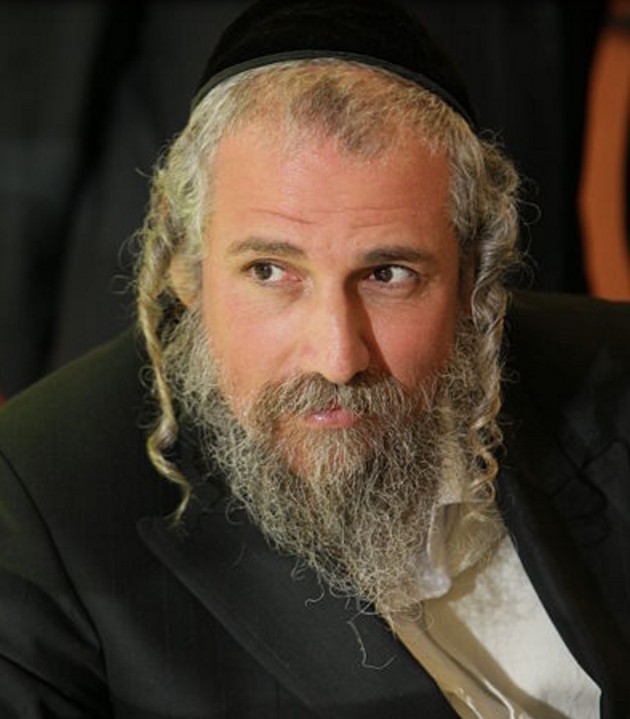In Search of God
The Power of Small Lights: Rabbi Erez Moshe Doron on Faith, Healing, and Modern Jewish Life
How Judaism offers real-life tools for meaning, connection, and emotional resilience in the information age
- Hidabroot
- |Updated

Rabbi Erez Moshe Doron was searching for truth from the time he was a child. He devoured books, explored different religions and spiritual paths, and spoke with people who claimed they held the secret to life’s meaning. Yet every encounter left him disappointed — until he discovered Judaism through a meeting with a newly observant Breslov Hasid.
Today, he stands on the opposite side of that journey: he is the person that modern seekers turn to — people arriving tired, confused, overwhelmed, and full of questions.
Over the many years since his return to Judaism, Rabbi Doron has become a wellspring of spiritual guidance. He leads the organization Or Penimi, publishes books and audio teachings at a rapid pace, and gives lectures across Israel. With his decades of experience, he sees clearly how dramatically Israeli society is changing — and how these shifts are leading more and more people to consider whether ancient Judaism may actually hold the answers they seek.
Why So Many Are Searching Today
“People see that the world is changing,” Rabbi Doron explains. “Everything has become dynamic, flooded with information. People want a quiet corner where they can breathe, understand who’s who, and find comfort from both external and internal crises.”
What used to be the journey of a few individualists has now become a widespread search. “Today, everyone is looking for a shoulder to lean on — and they realize very quickly that this shoulder exists only with God. Our sages predicted this generation, saying: ‘Upon whom can we rely? Only upon our Father in Heaven.’”
The Questions Have Changed
He notices that the questions people bring him today are different from those of the past. “Years ago,” he says, “people would ask, ‘I have my world, but I’m curious about Judaism — why is it this way or that way?’ Today people say: ‘I have no world. I have no life. I have nothing. Tell me what is.’”
People are exhausted, overstimulated, overwhelmed, and worn down by the pace and aggression of modern life. “You can almost see a sticker on people’s foreheads that says: ‘I have no place in the world.’ Rabbi Nachman teaches the opposite: that God Himself is the place of the world, and there is always room.”
Why Judaism? What Makes It the “Home” People Are Seeking?
“People may search elsewhere,” Rabbi Doron acknowledges, “but eventually they get tired of it. They realize it’s plastic. Not real. Not something they belong to. They want to come home — like a soldier returning after weeks away. Buddhism and other paths simply don’t give that feeling.”
Modern seekers are also far from naïve. “They say, ‘I’m tired, but I’m not foolish. Don’t trick me.’ And that healthy skepticism comes from a deep place — they want authenticity. Our sages say that those who genuinely seek truth are sent an angel of truth to guide them. They want someone who speaks to them at eye level, not from above and not with attack.”
A Personal Journey Through Many Paths
Rabbi Doron himself traveled through yoga, Buddhism, shamanism, parapsychology, and more before encountering Judaism. But once he did, all doubts evaporated.
“You can’t compare Judaism to anything I explored. It’s like comparing a galaxy to a crushed ant. Suddenly you look back and ask: ‘What were they selling me?’ It’s like someone who eats junk food for years and then finally has a real meal — you instantly recognize the difference. The whole picture becomes clear.”
Judaism Is About Real Life
If he had to summarize the difference in a single sentence, he says:
“Judaism speaks about life. Every detail of life. Other paths speak about leisure-time concepts or detachment from life. Judaism covers everything, down to the smallest detail. People want truth, not shortcuts.”
The movement toward Judaism today is happening across expanding circles, surprising even him. “In the past, people who became observant disappeared from the secular world. Today, no one disappears. They remain where they are and try to influence their surroundings by opening synagogues, and building mikvehs. Everywhere you see traces of this. Even people who appear far from Judaism suddenly ask deep halachic questions.”
 Rabbi Erez Moshe Doron
Rabbi Erez Moshe DoronThe Spiritual Struggle Inside the Religious Community
“At first I thought my books were meant for the secular public. I assumed that religious people already had everything sorted. But I quickly realized: all of Israel wants to return to God — including the religious. Being born into a religious society isn’t enough. You need to search, discover, live it, choose it.”
He sees fully observant people from every sector approaching him and saying simply: ‘We want to know Judaism.’
One regular attendee at his class is the son of a major rabbi. “He told me that everything his father taught him never touched his heart, so he comes to my class hoping to find a point of connection. There are difficult tests today, and people realize they can’t overcome them by habit alone — they need an inner spark.”
Addressing Painful Modern Crises
Rabbi Doron is currently writing a question-and-answer book that addresses the unique dilemmas of our time.
For example, he speaks about the painful phenomenon of discovering that a person trusted as a rabbi or spiritual guide was in fact abusive or corrupt. “This has shattered many people. It’s a serious test for our generation and can deeply endanger people’s faith. My goal is to help people emerge strengthened, not broken.”
He also addresses painful issues in relationships. “People write to me disappointed and hopeless, saying they feel nothing and want to understand what marriage is, how to communicate, how to cope.”
“One of the characteristics of our generation,” he says, “is the feeling that what’s demanded of us exceeds our abilities. That’s a mistake. Either we can do it, or what’s being asked of us is something different entirely. The Talmud says that each generation has one primary requirement. For ours, it is faith. So we must understand what faith really means and what God actually wants from us.”
The Power of Small, Steady Light
Rabbi Doron connects this idea to Chanukah. “What was required of us? Something simple: lighting candles. The victory was huge — so why not light bonfires on mountaintops? Because Judaism isn’t about noise. We pray quietly, not with megaphones. We light small flames. We are not asked for grandiose displays — just to light the candles each night.”
“To me, the real miracle is that the Hasmoneans lit the menorah at all. We might have said, ‘Why bother? It won’t last. Let’s wait until there’s more oil, let’s organize a ceremony, bring photographers.’ But they were thinking differently: Let’s do what we can, with simplicity. And that was the miracle.”
Many people feel powerless today. “‘What difference does it make what I do,’ they think, ‘when the world is falling apart?’ The answer is: do the mitzvot — and you will survive. This is how the Jewish people always survived: not through grand actions, but through small, consistent ones.”
One more pair of tefillin.
One more Shabbat observed.
One more candle lit.
One more prayer.
“Do what you can,” he says, “but keep doing it. Consistency is what wins.”

